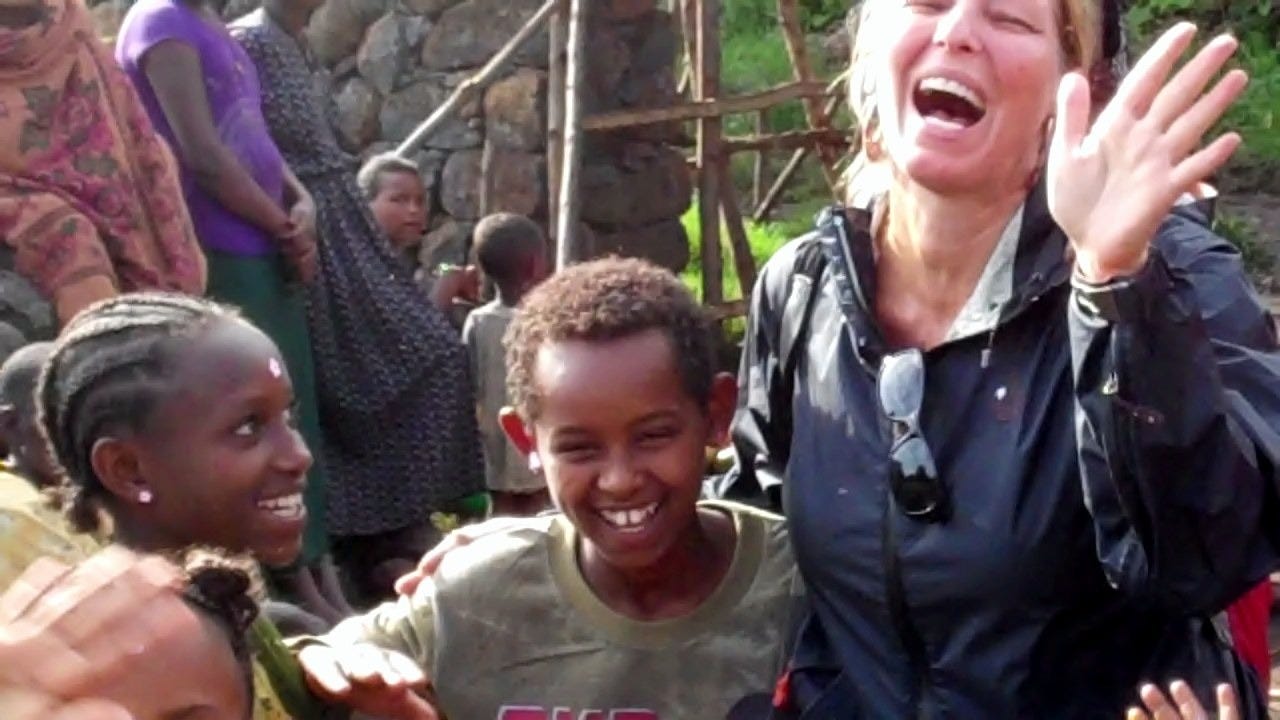Eating Humble Pie
An Adventure A Week
As I sat on the local mini bus staring out the window, I saw what looked like a scene straight out of the Middle Ages. There were open sewers, livestock roaming the streets, and starving children in tatters. I gasped.
I was in Gonder, Ethiopia when I saw poverty on another level. Not a religious person, I nevertheless sent up a prayer—ashamedly, not for those suffering, but out of concern for myself. “Please, God, do not let this be my bus stop.”
Coming face-to-face with the stark reality of extreme poverty for the first time, I was humbled. How could my first thought be for my safety and comfort? And incredulous. How could a place like this exist in our modern world?
Nearly 700 million people or 8.5% of the global population live in extreme poverty, defined as living on less than $2.15 per day. The good news is that the number of nations classified as low-income or “poor” has been decreasing, with countries such as India, Indonesia, Nigeria, and Pakistan moving out of extreme poverty as their economies develop.
But while most countries in East Asia and South Asia are making steady gains, the poverty rate in Africa is increasing, both in terms of absolute numbers due to higher birth rates and also a higher percentage of people living in extreme poverty. So in Africa, not only are more people living in poverty, but folks are getting poorer. A double whammy.
I often reflect on my travels through the developing world—a term that’s not quite right. I don’t think “under-resourced” is accurate either since most pain and suffering can be alleviated with a more equitable distribution of our global wealth. Society’s willingness to accept extreme poverty in favor of personal greed is heart-wrenching.
More than the lack of food and inadequate shelter, it is the annihilation of innocence that truly breaks my heart when I think about the people I’ve seen living and suffering in poverty. I recall the teenager cherishing his one broken shoe. The angry villagers that live on the banks of a dirty river. The child circus performers miming horrific memories and warnings.
These images are tangled with the memory of the Ethiopian man I’d seen wandering the muddy road, deranged and naked. Of women clutching cherished blankets in hospital rooms devoid of rubber gloves, the cheapest, most basic supply critical to saving lives. Of the sounds of croaking frogs and crickets that represent the greatest source of protein for a starving family.
For the next month, I’ll be sharing stories of encountering extreme poverty during my travels. What I did and how I felt seeing this depravity close up. Close enough to sense dejection. Close enough to feel thirst. Close enough to taste sorrow.
It is these images that have stayed with me over the years. Memories that remind me when I think I couldn’t possibly eat one more piece, I will always be served another slice of humble pie. 🦋
Have you ever encountered extreme poverty during your travels? How did you feel? Did these experiences influence your life or travels in a new way?
⭐ An Adventure A Week is a serial based on my autobiography “Adventures Of A Nomad: 30 Inspirational Stories.” You can read the essays in order (or not). Can’t wait for the next installment? Get the book.
Christened “Wander Woman” by National Geographic, Erin Michelson is a professional speaker and author of the Nomad Life™ series of travel books and guides, including the #1-ranked “Explore the World with Nomads.”





Traveling is always a stark reminder of the haves and haves nots. I remember my first time in Italy seeing the poverty in the countryside juxtaposed with the gold-leafed art in the churches around the country - all which required some form of entry fee. Do we just look at take photos and mutter, oh my what a shame? Or do we try to do something...is it enough to just buy the trinkets they sell as their main income source? My partner grew up in poverty, and it is always a source of rich conversation on how those in poverty think and feel and what they need, vs what we think they need. Will be interesting to come along on your journey.